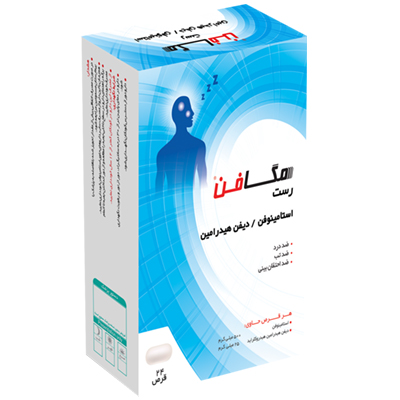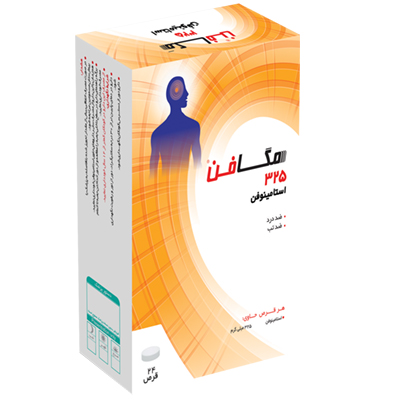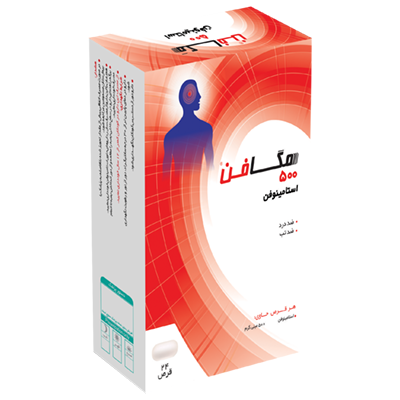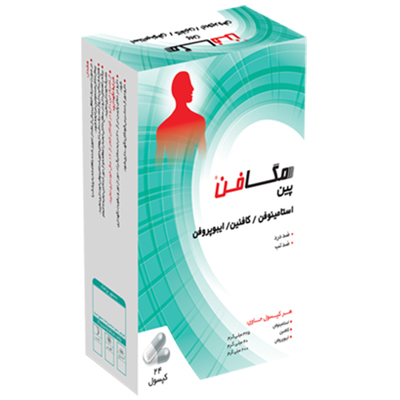Genital psoriasis is a chronic and bothersome form of psoriasis that appears in the genital area and is characterized by symptoms such as redness, inflammation, itching, and burning. This disease, which can affect men and women of all ages, has a profound impact on the quality of life, sexual relationships, and mental health of individuals.
In answer to the fundamental question that "Is there a definitive cure for psoriasis??"It should be said: No, there is no definitive cure. But sustainable control, relief of symptoms, prevention of disease progression, and improvement of quality of life are entirely possible. In recent decades, the emergence of biologic drugs, lifestyle modification or some kind of home treatment for genital psoriasis, anti-inflammatory diets, and attention to the psychological aspects of the disease have created a major revolution in the management of psoriasis, especially in sensitive areas such as the genitals.
Home treatment for genital psoriasis
Home treatments for genital psoriasis can be effective in reducing symptoms and improving quality of life. Although these methods are not a substitute for medical treatments, they are considered a useful complement:
- Use coconut oil: Pure coconut oil, with its moisturizing and antibacterial properties, can help soften the skin, reduce itching, and soothe inflammation. Regular application to the affected area (without vigorous massage) is recommended.
- Aloe vera gel: Natural aloe vera gel reduces inflammation and speeds up the skin's healing process. Applying pure aloe vera gel twice a day can help soothe symptoms.
- Oatmeal Bath: Adding colloidal oatmeal powder to lukewarm water facilitates the healing of inflamed skin. This method is very useful for those who suffer from constant itching.
- Use a cold compress: A cold compress helps reduce burning and itching and temporarily reduces inflammation. This method is especially effective in acute attacks.
- Wearing cotton underwear: Loose-fitting cotton underwear prevents excessive sweating and reduces direct skin contact, which is an aggravating factor.
Treating genital psoriasis with medication
In cases where home treatment for genital psoriasis is not enough, drug treatments should be considered. Treatment for genital psoriasis usually involves a combination of topical and sometimes systemic (oral) medications.
Creams and ointments for genital psoriasis
Genital psoriasis ointments play a key role in local control of symptoms, but you should remember that long-term use of these ointments in the genital area may cause skin thinning, atrophy, and even skin cracking. Therefore, they can only be used with a doctor's prescription and for short periods. Below are some of these ointments for genital psoriasis:
- Low-to-moderate-strength corticosteroid ointment: such as 1% hydrocortisone to reduce inflammation. Should not be used for more than two weeks continuously. Mometasone Megacort Ointment Which is also produced in cream formulation by Kish Medipharm Pharmaceutical Company. These ointments with anti-inflammatory properties quickly reduce redness, swelling and itching. Long-term use of this ointment for genital psoriasis may cause skin thinning, atrophy and even skin cracks. Therefore, it can only be used with a doctor's prescription and for short periods.
- Calcineurin inhibitor creams (non-steroidal): Such as tacrolimus and pimecrolimus, which are safer options than corticosteroids for sensitive areas such as the genitals. These ointments are a good option for long-term use in sensitive areas. They regulate the skin's immune system without damaging its structure. These products are characterized by their lack of long-term side effects of steroids and their gradual but sustained effectiveness.
- Moisturizing ointments: Contain ceramides (restore the skin's protective barrier), urea (retain moisture), and glycerin and petrolatum: create a gentle protective layer that strengthens the skin's defenses and reduces dryness. These ointments are the most basic and important part of daily psoriasis care. Keeping the skin of the genital area moisturized prevents dryness, itching, and irritation, and prevents microscopic cracks that can lead to inflammation.
- Some people turn to natural remedies. Although some herbal compounds have anti-inflammatory properties, using them on the genital area without medical supervision can be dangerous. Only mild, approved products should be used, such as: natural aloe vera gel, pure coconut oil, and calendula extract. These ointments are more of an adjunct to genital psoriasis and should not replace prescription medications.
Topical ointments for types of psoriasis, aiming to reduce inflammation and rebuild the skin's defense barrier, play a key role in the successful management of genital psoriasis. This therapeutic tool, if used carefully, timely, and under the supervision of a physician, can minimize symptoms and prevent disease progression.
Oral medication for genital psoriasis
In cases where genital psoriasis is severe, resistant to topical treatments, or widespread, your doctor may prescribe oral medications for genital psoriasis. These medications are usually prescribed to control the abnormal immune system response and reduce chronic inflammation. Unlike topical ointments, which only affect the surface of the skin, oral medications work systemically and can provide control of the disease in deeper or resistant areas.
The following are the major types of oral medications used in the treatment of genital psoriasis, along with their features, benefits, and precautions:
Methotrexate (Methotrexate)
One of the oldest systemic medications for controlling psoriasis, it reduces inflammation by suppressing the proliferation of activated immune cells.
- Mechanism of action: Inhibition of T cell activity and slowing down the rate of cell division.
- Dosage: Usually once a week, under the supervision of a doctor.
- Advantages: Relatively low cost, high effectiveness
- Disadvantages: Risk of liver damage, decreased white blood cell count, need for regular blood tests
- Recommendation: It is prescribed along with folic acid to reduce side effects.
Cyclosporine (Cyclosporin)
Cyclosporine is a potent immunosuppressive drug that is often used in acute cases or crises of psoriasis.
- Features: Fast onset of action, suitable for intense active phases
- Side effects: Increased blood pressure, kidney damage with long-term use
- Use: Only for short-term use due to possible toxicity.
Apremilast (Apremilast)
It is a relatively new drug from the class of PDE4 inhibitors that controls certain inflammatory pathways at the cellular level.
- Advantages: No serious liver and kidney complications, no need for blood tests
- How to use: Orally, twice a day
- Common side effects: nausea, diarrhea, loss of appetite, mild weight loss
- Indications: Suitable for people who cannot tolerate methotrexate or biologic drugs.
Oral retinoids
Retinoids are synthetic forms of vitamin A that control the rate of skin cell growth.
- Uses: Mostly for resistant plaque psoriasis and psoriasis in specific areas such as genitals
- Important note: Prohibited in pregnant women or women of childbearing age; carries a risk of fetal defects
- Side effects: Severe dry skin and lips, increased blood lipids.
Biological drugs (Biologics)
If a patient does not respond to oral treatment or if their disease is severe, a doctor may prescribe biologic drugs. Although most biologic drugs are given by injection, they are worth mentioning in this section because of their therapeutic importance. Biologic drugs include:
- Secukinumab
- Ixekizumab
- Adalimumab
Important points in using Oral medications for genital psoriasis
Although some oral medications are advertised as "effective treatments" on the internet or in non-medical advice, the reality is that self-medication with these medications for genital psoriasis and other problems can lead to serious complications, irreversible damage to the liver, kidneys, bone marrow, or even life-threatening conditions.
Below, we detail the reasons why treatment for genital psoriasis should only be used under the supervision of a dermatologist and with regular laboratory tests:
- Oral medications, such as methotrexate or cyclosporine, directly affect the function of the immune system and vital organs. These medications may cause a decrease in white blood cells, liver damage, and an increase in blood creatinine and blood pressure.
- Only a specialist physician, by carefully reviewing the medical history, blood test results, liver enzyme levels, and kidney function, can determine the appropriate dosage and duration of medication.
- If side effects occur, discontinuation or dose adjustment of the drug should be done carefully and step by step; no arbitrary decisions should be made.
- Oral medications for psoriasis can have dangerous drug interactions with many other medications (including anti-inflammatories, antibiotics, anti-seizure medications, and even herbal supplements). For example, methotrexate can cause acute liver failure if taken with alcohol or some antibiotics.
- Also, taking certain supplements or foods (such as grapefruit or certain herbal products) may increase or decrease the effect of the medication.
- Patients with kidney failure, fatty liver, diabetes, depression, or metabolic disorders require more special care.
Any oral medication for the treatment of genital psoriasis should only be taken with a prescription and under the direct supervision of a dermatologist. Visiting a doctor, having periodic tests, following medication instructions, and avoiding unproven treatments are the only safe and effective ways to control this chronic disease.
Treatment of female genital psoriasis | Treatment of vaginal psoriasis
Treatment of vaginal psoriasis requires special care, as the vaginal area is very sensitive. The use of unscented, oily-based creams that are compatible with the mucosa is recommended. Low-potency steroid ointments may also be used under the supervision of a gynecologist. It is very important to avoid irritating the area and to maintain gentle hygiene.
Treatment of genital psoriasis in women should be a combination of physical and psychological treatments. Embarrassment, fear of sex, and social anxiety are important challenges for women affected. Sexual counseling and psychotherapy, along with skin treatments, accelerate the healing process. In a comprehensive article in detail about Psoriasis of the female genital area We have paid.
Treatment of male genital psoriasis
Treatment of male genital psoriasis requires a meticulous, sensitive, and multifaceted approach. The condition, which often presents as red, flat, non-scaly patches on the genital area, can cause physical discomfort, pain, chronic itching, and significant psychological impact.
In men, symptoms often appear on the penis and scrotum. Treatment for genital psoriasis in men is similar to that in women, except that the skin in these areas reacts differently to certain medications. Using gentle creams, avoiding tight clothing, and maintaining daily hygiene are the mainstays of treatment. Psychotherapy can be effective in cases of low self-esteem or sexual dysfunction.
Maintaining meticulous personal hygiene, washing with lukewarm water and fragrance-free detergents, drying the area thoroughly with a soft towel, wearing loose, breathable cotton underwear to prevent friction and sweating, and using daily moisturizers that are free of alcohol, fragrance, and dyes are among other things to control or treat male genital psoriasis.
To receive complete, scientific and professional information about Genital psoriasis in men, see the relevant article
Definitive treatment for genital psoriasis: reality or slogan?
One of the most frequent searches in cyberspace is the definitive treatment for genital psoriasis or the killer of genital psoriasis; is there one? But so far, psoriasis is known to be a chronic and relapsing disease for which a definitive cure has not yet been found. However, existing treatments are able to control the disease to a great extent and prevent repeated relapses.
The term genital psoriasis killer is more commonly used to refer to strategies that significantly reduce symptoms. Some of the most effective control methods include:
- Combining modern and traditional medicine treatment: Consuming foods such as barberry, chicory root, and green tea along with biological or topical medications.
- Lifestyle changes: stress reduction, exercise, antioxidant-rich diet, avoidance of alcohol and tobacco.
- Regular sleep and psychological care: Insomnia and anxiety are factors that contribute to the exacerbation of attacks.
Conclusion | Treatment of genital psoriasis
Treating genital psoriasis is a multi-step process that requires patience, persistence, and medical supervision. Along with topical ointments and oral medications, home remedies and a healthy lifestyle play an important role in controlling the disease. Although there is no definitive cure for this disease yet, the numerous available methods, especially with the introduction of biologic drugs, offer patients the possibility of long-term control and improved quality of life.
To learn more about the nature and What is psoriasis?, its causes, different types, common symptoms, and its relationship with the immune system, we recommend that you read the related articles. This resource will help you have a deeper understanding of the background of the disease and be better able to choose the appropriate treatment path.




